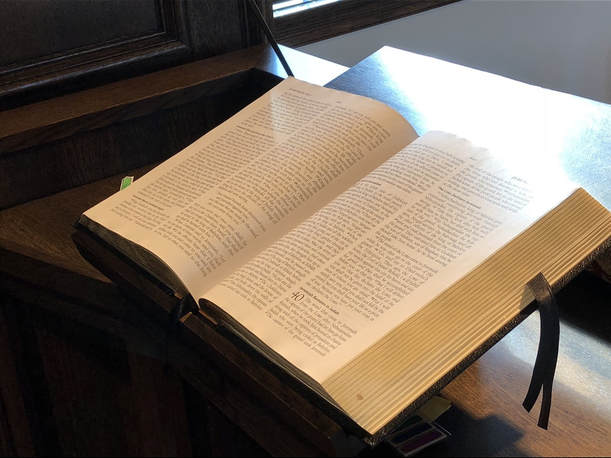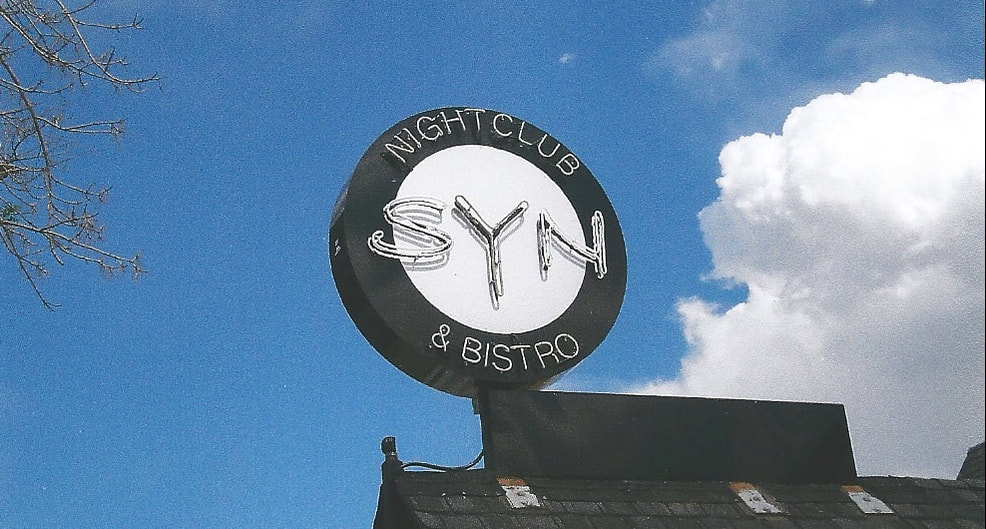|
One of the responses I often get from people who are new to Anglicanism is surprise at the abundance of Scripture that is read in our worship services. Whether it is in the Daily Office, Holy Eucharist, or even weddings or funerals, the public reading of portions of the Bible is central to every act of worship we do. And yet, for many Christians, faith has become overly individualized. The important thing, we are told, is our own personal relationship with Christ. That is all I need. So it should be enough for me to just read the Bible on my own, right? Well, not exactly. While I certainly believe that all Christians need to spend time reading and studying God’s Word privately on a daily basis, it is also vitally important that we read it publicly when we gather together as a community.
The history of the public reading of Scripture goes back long before the formation of the Christian Church. When Josiah discovered the Book of the Law in the Temple in 2 Kings 22-23, his first order of business was to have it read in public. The people of God had neglected this practice for so long that they no longer knew what the Lord required of them, and consequently had fallen into idolatry. When Josiah had the book read aloud before the people it sparked a national revival and return to the ways of the Lord. Unfortunately they did not continue with the practice, and quickly fell back into idolatry and ultimately were exiled to Babylon.
0 Comments
There we stood, spies on the banks of our own Jordan River, looking into the Promised Land. Our river was a sidewalk on Pikes Peak Ave. in downtown Colorado Springs. It was a Friday afternoon in April, 2011. We had been through quite a bit in the past few years. In 2007 we had left the Episcopal Church over issues of theology (that is another story for another time), and after losing a two year legal battle over the $17 million historic property we found ourselves homeless. We quickly secured a lease on a building that had once been a private school that had gone bankrupt soon after moving in. It was not an ideal building. It had been designed to be a school for young children and not a church, so we had to be a bit creative with how we used the space. It looked nice but had been cheaply built. Nevertheless, it had provided us a with place of retreat as we licked our wounds and regrouped.
We were very intentional in framing the time in this building as our Wilderness Period. The setting was certainly appropriate. The building was nestled into the edge of the foothills and hidden behind a neighborhood. It was literally a wild west “hole in the wall” where bandits would come to hide out from the law. We were thankful to have a place to go, but we knew it was only going to be temporary. We told the congregation we would be there for two years, the same amount of time the Israelites were supposed to be in their wilderness period. For Israel, the extra 38 years were added on because of fear and unfaithfulness. We were determined not to repeat the same mistake. Thus our reason for standing on this sidewalk. |
The Rev. Eric ZolnerFather Eric is a 3rd generation Anglican and the Rector of All Saints Anglican Church in Springfield, MO. Archives
February 2021
Categories |
|
All Saints Anglican Church
2751 E Galloway Street Springfield, MO 65804 Church Phone Number: 417-888-3001 GET DIRECTIONS |
Sunday Morning Worship
8:15 a.m. Holy Communion 10:45 a.m. Holy Communion Click here for this week's worship schedule Morning Prayer 8:15 a.m. Monday through Friday |



 RSS Feed
RSS Feed